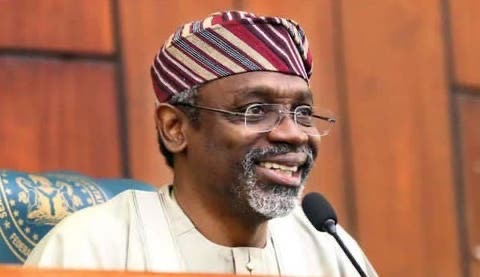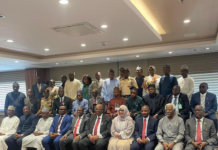PIB: Labour Warns Against Multiple Regulators
Politics Digest – Stakeholders in the oil and gas sector yesterday disagreed with the provisions of the Petroleum Industry Bill (PIB), though they agreed on the need for the speedy passage of the bill to drive the needed reforms in the sector.
While organised labour warned against creating multiple regulatory agencies under the new law, insisting this may lead to unhealthy rivalry among them, some state government want to be on the boards of such agencies as well that of NNPC Limited.
While the Nigeria Labour Congress (NLC) wants a Nigeria Oil and Gas Commission as the sole regulator, oil workers suggested the Oil and Gas Regulatory Commission instead of the two commissions being proposed under the law.
However, the Speaker of the House of Representatives, Mr. Femi Gbajabiamila, who presided over the public hearing on the PIB, assured that the National Assembly would protect Nigerians’ interest in the bill.
He said it was unfortunate that, despite the importance of the bill to the economy, it was not passed into law by previous Assemblies.
Gbajabiamila said there was a consensus about the need for a reform in the industry.
“We did not arrive at this consensus suddenly. For a long time, we have known that this critical national industry underperforms its potential and our national expectations. For the most part, we all agree on the need for legislative action to make improvements through statutory and regulatory reform. Therefore, it is disappointing and frankly difficult to explain how successive governments have failed to deliver on the promise of reform despite this broad agreement,” Gbajabiamila said.
He assured that the National Assembly would ensure quick passage of the bill, noting that the legislators have an opportunity and an obligation to do better, and they will.
The Speaker said the National Assembly was not oblivious of the many contending interests in the sector, adding: “These contentions do not need to result in conflict, especially when we know the objective of national prosperity benefits us all.’’
He added: “Therefore, the process of engaging with stakeholders will continue beyond this public hearing to accommodate the diversity of interests and ensure all critical views form part of the deliberations that inform the final legislation.
“Regardless of whatever other interests may exist, Nigeria’s best interests is both our desired outcome and guiding principle.
“It falls to this Ad-Hoc Committee to engage in a necessary balancing act in the interests of our beloved nation.’
“For a country such as ours, as dependent on income from this industry as we are, this is a dire possibility made worse by the inefficiencies that bedevil our local industry and deprive us of the full benefits that ought to derive therefrom,” Gbajabiamila said.
According to him, predictions of the fossil fuel industry’s demise have persisted for decades, so, understandably, some might dismiss these concerns out of hand. Nonetheless, the truth remains that modernising and diversifying the economy away from over-reliance on income from fossil fuels becomes a matter of greater urgency with each passing day.
“The irony, of course, is that to do this, we must first make sure our oil and gas industry is more productive, more efficient and more profitable at a time of declining global profitability. This is a tall order.
“The Petroleum Industry Bill is a necessary first step towards reorganising the sector to respond to the new global reality of decreasing demand and the diminished profitability of fossil fuels.
“Other countries have woken to the challenges of the new dynamics in the international market for crude oil and natural gas. Some have begun to adapt to these new realities, whilst others have already done so.
“We intend that when the Petroleum Industry Bill (PIB) becomes law, it will address our peculiar and localised concerns in ways that allow our oil and gas industry to compete more effectively globally. We will borrow from what has worked for others, but the solutions we implement must be uniquely suited to our needs.
“There have been various prior attempts to meet this obligation. Let us remember those attempts and be motivated by the knowledge that we can now correct past mistakes and fulfil the responsibility we owe these communities once and for all.
“This bill has been long coming like the chairman said, it has been upcoming in the last 20 years because of contending and vested interest, we have not been able to reach the desired outcome over the years.
“We are in a world, an economic world, so there must be interest groups, they will be interest groups and we cannot deny that. But what should guide the outcome of what we do here as we accommodate more views will be what will be in the best interest of the people.
“More importantly, we intend to pass this Bill by April. That is a commitment we have made. Some may call it a tall order, but we will do it and we will do it with every sense of responsibility without compromising the thoroughness of the work that will be done,” Gbajabiamila said.
Minister of State, Petroleum Resources, Chief Timiprye Sylva said the Bill aims at establishing good governance, competitiveness, global best practices and the ease of doing business within the Nigerian oil sector.
According to him, the Bill is designed to guarantee early revenues for government, clarify roles and simplify administration of this sector, infuse transparency in regulation, ensure equity and fairness for all industry players and mandate the role space responsiveness of regulators.
“Specifically the Bill seeks to achieve the following objectives: Promote economic growth to increase oil and gas production, stimulate economic growth through strong investments in mid-stream gas infrastructure to increase gas based oil generation and industries, enable frontier exploration and establish an effective management system among others,” Sylva said.
He said several engagements have been held in key domestic and international industries stakeholders including industry players and operators with a view to generate some level of consensus in the national assembly.
“While every care has been taken to accommodate different shades of opinion in the Bill, it cannot be complete without the input of the generality of the public which will ultimately enrich the document and put upon it the legitimacy and acceptance that is required to operate the law when passed.
“Passing the law after all the relevant processes have been completed is only a means to an end, not an end in itself. The end thereof being to operationize the law in a manner that best achieves the aims and objectives detailed earlier, ” Sylva said.
Read Also:
Chairman of the Adhoc Committee on the PIB, Rep. Mohammed Tahir Mongonu (APC-Borno) stressed that when passed, the bill is expected to address salient issues, especially in the oil producing areas of the federation.
According to him, Nigeria’s oil industry operates in a global environment that is constantly shifting in favour of countries with the most competitive, accommodating legislative instruments. The absence of these factors has resulted to the loss of significant amount of investments.
“In an effort to address the present state of quagmire in our oil and gas industry, we must put in place a legislative instrument such as this, which establishes a fiscal framework to boost oil and gas output, enhance sector attractiveness for international investors.
”This will increase foreign direct investment, which will undoubtedly catalyse Nigeria‘s economic recovery. It also places strong emphasis on developing a domestic gas market in Nigeria by providing measures to encourage companies to explore and produce gas from discoveries, as well as a framework for gas tariffs and delivery.
“As we gather here today, we may differ in opinions and background but the consensus is that the passage of this Bill is long overdue. I am aware, from interactions with stakeholders and experts in the Industry, that exploration of fossil fuel may only last for another twenty years.
“It is not to say that we might exhaust the deposit, but the entire world is focusing on research to develop alternatives to fossil fuel by creating renewable energy that could turn out to be cheaper and environmentally friendlier,” Mongonu said.
President, Nigeria Labour Congress, Comrade Ayuba Wabba said critical stakeholders in the oil and gas industry should be represented on the board in view of the numerous collective bargaining agreements (CBA) for oil industry remuneration and championed by the industrial unions affiliates of NLC like NUPENG and PENGASSAN.
Wabba also want labour to be represented on the boards of the regulatory agencies, adding that the inclusion of Labour as critical stakeholders in the oil and gas industry will enrich the composition of such board.
Wabba argued that workers should not have their hair shaved in their absence whether in policy making affecting the workforce or the implementation of otherwise altruistic directives but which could be skewed to hurt the workers.
He said labour was opposed the provision which grant the Minister power to incorporate under the Companies and Allied Matters Act, a limited liability company, which shall be called Nigerian National Petroleum Company Limited (NNPC Limited)
“Labour disagrees with this provision. There is ample grounds for worry in this provision. Indeed, incorporation under CAMA of NNPC Ltd has potential implications for adverse business manoeuvres, including winding up of the incorporated company by a petition. Therefore, creditors, hostile take-over bids and even minority shareholders could scheme the extant rules to the disadvantage of the Nigerian people,” Wabba said.
Workers in the oil and gas sector under the auspices of the Petroleum and Natural Gas Senior Staff Association (PENGASSAN) and National Union of Petroleum and Natural Gas (NUPENG) warned against passing a bill that will send investors away or put projects like the Deep Offshore and Inland Basin Amendment Act that was passed by the National Assembly on hold.
President of PENGASSAN, Comrade Festus Osifo who presented the position of the two unions said the National Assembly should rather conduct a study on how the laws they pass can help in redirecting the industry.
He said with oil currently discovered in over 25 countries in Africa, Nigeria must pass a PIB that will attract investment to Nigeria ahead of Angola, Congo, Gabon, Libya adding that the PIB to be passed must protect Nigerian workers and stamp out casualisation in the industry.
He said the bill must also be able to attract investment and increase volume and more revenue to government in the long.
While opposing multiple regulatory agencies for the industry, the unions said only one regulatory to be known as Oil and Gas Regulatory Commission should be allowed in the industry as against the two contained in the bill, adding that creating two regulatory agencies may lead to unhealthy competition which will not be in the interest of the industry.
“One regulator will be a one stop shop for investors and enhance the ease of doing business. Rather than multiplying agencies will create bottleneck and cause unhealthy rivalry. Most Foreign Direct Investments are made because investors knew that there is a single regulator. Lets us all avoid changing the rule in the middle of the game. This (Single regulator) is what ls obtainable in other part of the world. Let us not reinvent the wheel,” Osifo said.
In his presentation, representative of Total Nigeria, Victor Bamidele said the business context in the sector has recently deteriorated, while uncertainties and concerns around the fiscal environment have arisen from the Deep Offshore & Inland Basin Production Sharing Contract Amendment Act (DOAA) in 2019, the Finance Act in 2020, and versions of the PB that have negatively affected investor sentiment.
According to him, this trend is evident in investment data, adding that over the 2015-2019 period, Nigeria attracted only 4% of the 70 billion dollars committed to Africa’s oil and gas industry despite having the largest reserves in Sub-Saharan Africa and several giant fields remain unsanctioned.
He said the PIB should be able to reverse this trend and be forward looking, adding that the global energy transition is shifting investment away from fossil fuels and into renewables and low-carbon sources.
He said Total was convinced that hydrocarbons will remain an essential part of the future energy mix, but to a lesser extent, and this reduced demand will be fully met from the cheapest and most profitable resources.
According to him, if the fiscal and cost environment in Nigeria is not competitive and fit to meet this challenge, then the country’s world-class resources may remain stranded if the Bill does not incentivize future investments.
“The governance and administrative reforms in the Bill are far reaching and ambitious. Total, as a member of OPTS, fully supports the collective industry commentary on the proposed terms as detailed in the OPTS Memorandum submitted to the Committee and will not comment further herein,” Bamidele said.
While admitting that the bill is an extensive reform that touches all parts of the industry framework and all stakeholders, Bamidele said the reform brings the opportunity to kick-start a stalled industry and position the country as a preferred investment destination.
But state governments in the region wants to be fully represented in both the Commissions to be established as well as allocated shares in the NNPC limited to be incorporated.
Rivers State Government wants the headquarters of the two Commission being created under the bill as well as the headquarters of the NNPC Limited and headquarters of all oil producing companies in the country to be sited in the state.

















